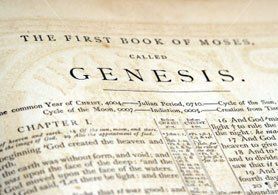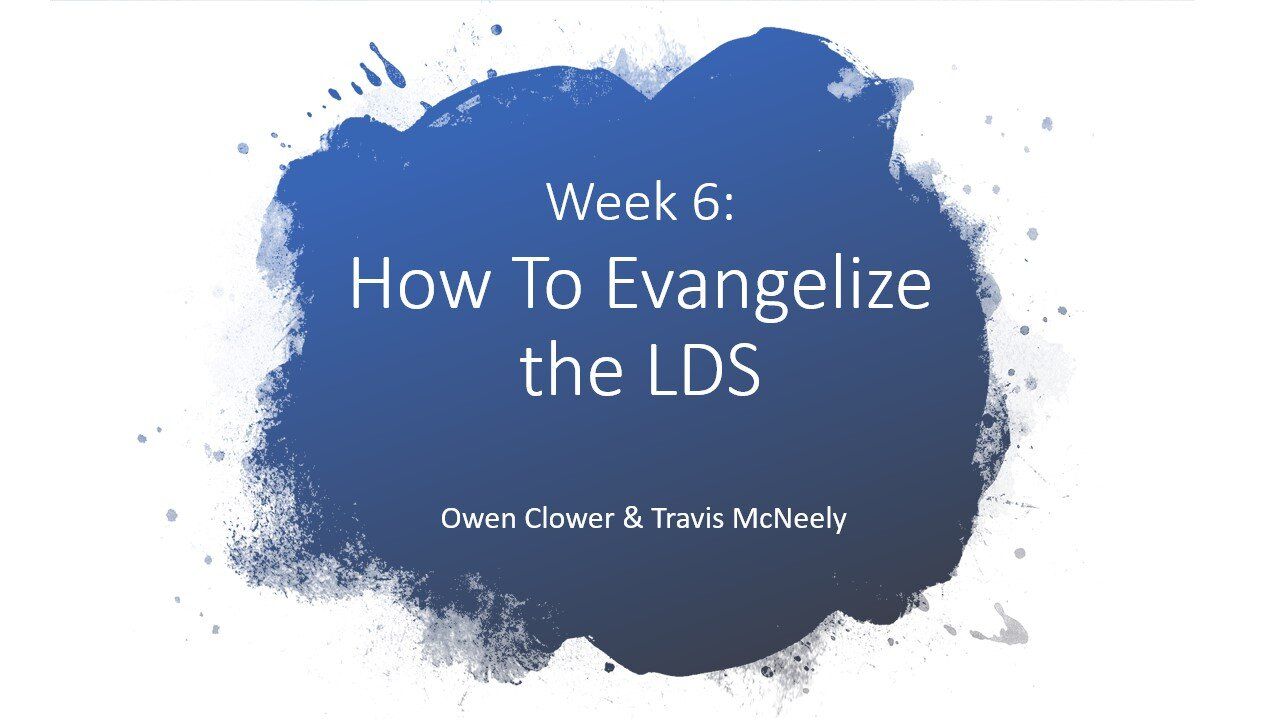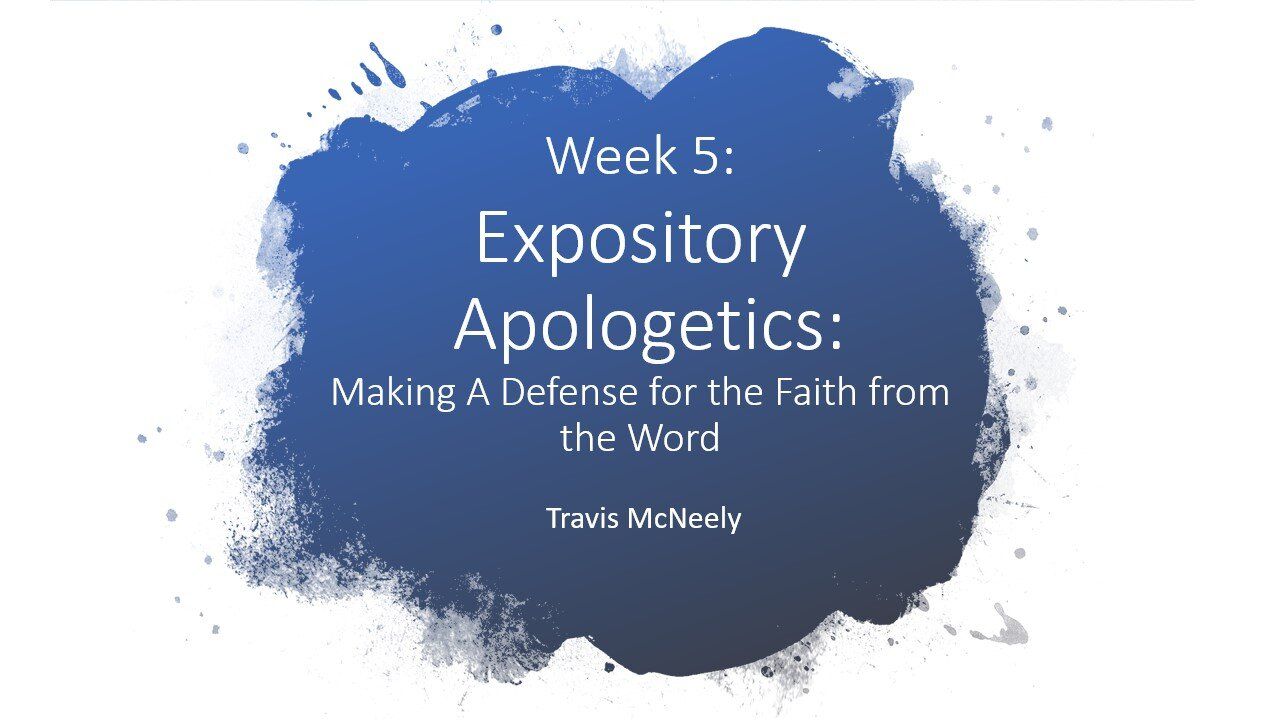Albert Mohler: The Christian Worldview as Master Narrative: Creation



Albert Mohler: The Christian Worldview as Master Narrative: CreationDr. Mohler is one of the leading evangelical intellectuals of the 21st Century. His daily analysis of news and events from a Christian worldview, titled, "The Briefing" and his many interviews and articles speak profoundly of Christ and Culture. As the President of The Southern Baptist Theological Seminary, his influence is broad and he writes very concise and biblical essays, which I believe many believers
Albert Mohler: The Christian Worldview as Master Narrative: CreationDr. Mohler is one of the leading evangelical intellectuals of the 21st Century. His daily analysis of news and events from a Christian worldview, titled, "The Briefing" and his many interviews and articles speak profoundly of Christ and Culture. As the President of The Southern Baptist Theological Seminary, his influence is broad and he writes very concise and biblical essays, which I believe many believers Albert Mohler: The Christian Worldview as Master Narrative: CreationDr. Mohler is one of the leading evangelical intellectuals of the 21st Century. His daily analysis of news and events from a Christian worldview, titled, "The Briefing" and his many interviews and articles speak profoundly of Christ and Culture. As the President of The Southern Baptist Theological Seminary, his influence is broad and he writes very concise and biblical essays, which I believe many believers[1] He is before all things and in Him all things hold together.[2] But who is He and what is His name? His name according to Moses' encounter with the Him at the burning bush is: “I AM WHO I AM” or Yahweh.[3] He chose to reveal Himself as the Self-existent One. When He created the world He did not have any other help, He did it all by Himself and by acting out in this way, He shows clearly His transcendence over creation as being separate from it, not a part of it or within it.When beginning the story of the Bible, the reader finds himself or herself in Genesis 1-2, in the garden in Eden. God has created the stars, planets, galaxies, waters, land, plants, animals of all kinds, man and woman, and set an order to rest on the seventh day. He set the first man, Adam, to be the viceroy and representative of God on earth, to take care of the garden.[4] Made in the image of God, Adam on the sixth day names all the animals, but then finds he is separate from them in kind and has none fit for him.God then puts Adam into a deep sleep and creates woman out of Adam by taking one of his ribs and forming her from it. She becomes Adam’s helpmate and friend, and as now a full creature he is able in this state to perfectly image God. For Adam is no longer alone just as God in His Trinitarian Essence is not alone, enjoying perfect fellowship as Father, Son, and Holy Spirit. God made the woman because He knew it was good for him.[5] God created Adam for intimacy and so He put him and his wife in the garden. A place of stewardship to work and “be fruitful and multiply.”[6] As a place to do live out this calling, God gave one commandment, “You may surely eat of every tree of the garden, but of the tree of the knowledge of good and evil you shall not eat, for in the day that you eat of it you shall surely die.”[7]Everything God had made was good and perfect. Not a stain of evil or sin even existed in all creation. Man had the “pure(st) sense of life” because he was in perfect fellowship with God and in harmony with the created order, a world so unfamiliar to all who have descended after them. A place where man was fully himself like man has never been since. The main character in a literary sense is God, because here He is the One who is acting in awesome and glorious ways. He is bringing all things into existence, displaying His wisdom, intelligence, beauty, and glory. The New Testament helps theologians to see that Jesus is and was the Agent of the Father in the creation of the world.[8]Believing in a Trinitarian doctrine of theology, one can clearly see within the NT the divinity of Jesus Christ. The author of Hebrews wrote of the second person of the Trinity, “ . . . his Son, whom he appointed the heir of all things, through whom also he created the world. He is the radiance of the glory of God and the exact imprint of his nature, and he upholds the universe by the word of his power” (Heb. 1:2b-3b, emphasis added). An early church father, St. Athanasius wrote of the Son of God and His role in creating the world:
We will begin, then, with the creation of the world and with God its Maker, for the first fact that you must grasp this: the renewal of creation has been wrought by the Self-same Word Who made it in the beginning. There is thus no inconsistency between creation and salvation; for the One Father has employed the same Agent for both works, effecting the salvation of the world through the same Word Who made it in the beginning.[9]
How is the creation narrative, the best possible beginning for a comedic understanding or comparison for the argument of Scriptures being the highest form of comedy? Chiefly the reason is this: it has the most pure beginning any story can have or ever attempt to attain. There is a realm of imagination one must enter when thinking of a perfect world, since none today have lived in that faint dream. But once upon a time it was an actual reality the readers of the Scriptures can only imagine, for it was a reality for Adam and Eve. [1]Heb. 1:1-4.[2]Col. 1:15-20.[3]Ex. 3:14.[4]Gen. 1:26[5]Gen. 2:18-25[6]Gen. 1:28[7]Gen. 2:16-17[8]NT abbreviation for New Testament.[9]Athanasius, On the Incarnation, trans. and ed. by A Religious of C.S.M.V. intro. by C.S. Lewis (New York: St Vladimir’s Seminary Press, 1993), 26.
Want To Book Me for Your Event or Conference?
Fill out the form below and we'll be in touch!
Book Travis McNeely
We will get back to you as soon as possible
Please try again later
More posts like this...




